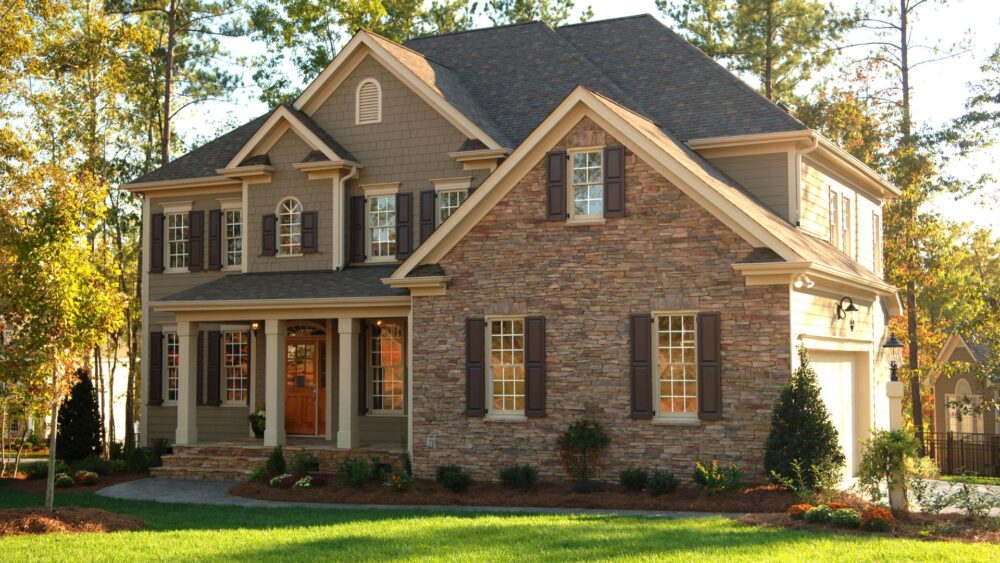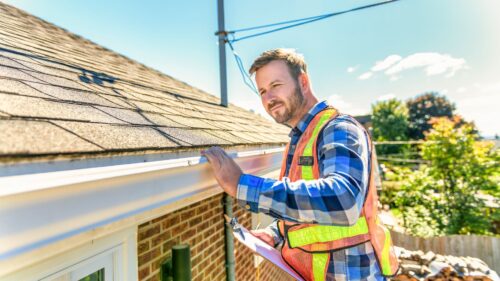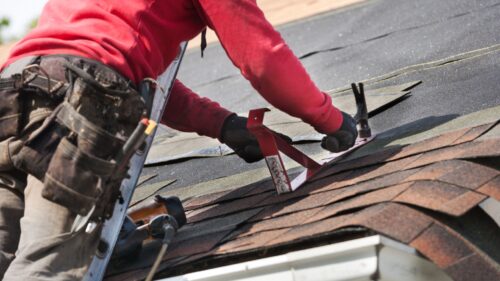Ever felt lost staring at a page full of numbers from your roofer? You’re not alone. The maze of materials, labor costs, and fine print can be overwhelming. But fear not! Understanding roofing estimates is about knowing where the real value lies beneath those figures. Whether you’re eyeing a minor repair or a major overhaul, getting the hang of comparing quotes is crucial. So, let’s pull back the curtain and dive into this so you can pick out what’s absolutely perfect for your place with total confidence.
Deciphering Roofing Estimates: Key Components to Understand
Understanding Cost Breakdown, Identifying Labor and Material Costs, Recognizing Overhead and Profit Margins
When you get a roofing estimate, it’s not just one big number. But honestly, that barely scratches the surface. You’ve got to break down the cost components to really understand what you’re paying for.
First up, labor costs. This is what the roofer charges for the time and expertise of their crew. It’s a big chunk of the total, and for good reason – these folks are skilled professionals.
Next, material costs. This goes from top to bottom, covering everything you can think of – yes, that includes the shingles and even down to the nails. The quality and quantity of materials used can really impact the bottom line.
Then there’s overhead expenses. This is stuff like insurance, equipment, and office costs. It’s the cost of doing business, and it gets factored into your estimate.
Finally, the profit margin. This is what the roofer earns above their costs. It’s typically 10-20% of the total. So when you’re looking at that estimate, remember – it’s not just about the raw costs. There’s a lot more to the story.
How to Compare Roofing Contractor Quotes Effectively
Evaluating Contractor Credentials, Assessing Quality of Proposed Materials, Comparing Cost vs. Value
Comparing roofing quotes isn’t as simple as just picking the lowest price. To really stretch your dollar and find those unbeatable deals, it’s all about digging a bit deeper.
So, kick things off by taking a good look at the contractor’s qualifications. Are they licensed, insured, and experienced? Have they consistently delivered top-notch work? Don’t be afraid to ask for references and check them out.
Now, take a closer look at the material quality they’re pitching your way. Higher-end products may cost more upfront but could offer better long-term value. Cheap materials might save you a buck now but cost you later in repairs and replacements.
Finally, consider the overall value, not just the bottom-line cost. A slightly higher estimate from a reputable contractor using top-notch materials could be a much better investment than a lowball bid from a fly-by-night operator.
Remember, your roof is a big deal. It’s protecting your home, your family, your stuff. It’s worth taking the time to really compare those quotes and make an informed decision.
Essential Questions to Ask Before Accepting a Roofing Estimate
Warranty Coverage Queries, Inquiring About Workers’ Compensation and Liability Insurance
Before you sign on the dotted line for your roofing project, there are some key questions you need to ask. Trust me, you don’t want any surprises down the road.
First up, warranty information. What’s covered, for how long, and what are the limitations? A good contractor will offer a solid warranty and stand behind their work.
Moving on, it’s smart to pop the question about workers’ compensation and liability insurance. Accidents can happen, even with the best crews. You want to make sure you’re protected in case something goes wrong on the job site.
Don’t forget to ask them how they handle their projects from start to finish. How will they keep things on track, on time, and on budget? Will they do daily clean-up? What safety protocols do they follow?
Getting clear, detailed answers to these questions upfront can save you a world of headaches later. A reputable roofer will be happy to address your concerns and put your mind at ease. If they seem evasive or annoyed by your questions, well, that’s a red flag in my book.
Spotting Red Flags in Roofing Estimates
Warning Signs of Underpricing, Indicators of Poor Customer Service
When you’re reviewing roofing estimates, it’s important to keep your eyes peeled for red flags. Paying attention to these red flags now can save you from a heap of trouble later on.
One big one is excessively low pricing. If a quote seems too good to be true, it probably is. Lowball estimates often mean subpar materials, shoddy work, or hidden costs. Don’t be tempted by a “bargain” that could end up costing you more in the long run.
Another red flag is poor customer service. If a contractor is unresponsive, evasive, or pressures you to make a quick decision, proceed with caution. A reputable roofer will take the time to answer your questions, provide detailed information, and let you make an informed choice.
Trust your gut. If something feels off about an estimate or a contractor, don’t ignore that feeling. It’s better to spend a little more time finding the right fit than to rush into a decision you might regret.
Understanding the Importance of Material Selection in Roof Estimates
Choosing the Right Materials for Your Roof
One of the most critical factors in any roofing estimate is the material selection. The materials you pick for your new roof play a big role in how much it’ll cost, how long it’ll last, and how stunning it will look when all is said and done.
Asphalt shingles are a popular choice for many homeowners. They’re affordable, come in a variety of styles, and can last 20-30 years with proper maintenance. But they’re not the only option.
Let’s not overlook metal roofing, a real powerhouse when it comes to lasting strength and keeping those energy bills down. It comes with a higher price tag, but it can last 50+ years. Tile, slate, and wood shakes are also possibilities, each with their own pros and cons.
When reviewing your roofing estimate, make sure the material list aligns with your preferences and budget. Consider factors like your home’s style, your local climate, and your long-term plans for the property.
Don’t be afraid to ask your contractor for their recommendations and insights. A savvy roofer will be your best buddy when it comes to picking out the perfect materials for your roof, based on what you need and where you live.
The Role of Inspections and Permits in Your Roofing Project’s Estimate
Necessity of Thorough Inspections Before Quoting, Understanding Permit Costs
Before a roofer can give you an accurate estimate, they need to perform a thorough roof inspection. This crucial step allows them to assess the condition of your current roof, identify any underlying issues, and determine the scope of work required.
When the contractor comes around for a check-up, they’ll keep an eye out for any tell-tale signs of wear and tear, from leaks that could spell trouble to structural issues that need addressing. They’re also on the lookout to make sure everything’s up to code and will point out any spots that might need a bit more love or some repairs.
Based on their findings, they’ll put together a detailed estimate that outlines the work to be done and the associated costs. This may include things like removing the old roofing, making repairs to the decking or underlayment, and installing the new materials.
In addition to the inspection, most roofing projects require building permits from your local municipality. These permits ensure that the work is done to code and meets safety standards. The cost of these permits should be clearly outlined in your estimate.
Just a heads up, if the inspection digs up some surprises or finds out we’re not exactly playing by the rulebook, it could mean more time and money before we cross the finish line with your project. A reputable contractor will communicate any changes or adjustments to you promptly and transparently.
FAQs in Relation to “Understanding Roofing Estimates: What to Look for and How to Compare Quotes”
How to Compare Roofing Quotes?
Dig into the details. Check credentials, material quality, and overall cost versus value. Don’t just glance at the bottom line.
How Do You Read a Roof Estimate?
Break it down: materials, labor, overheads, and profits. Make sure each section is clear and adds up correctly.
How Many Quotes Should You Get for Roof Replacement?
Aim for three to five quotes. This range lets you see different options without overwhelming yourself with choices.
What is the Formula for Estimate of Roofing?
No single formula fits all roofs. But estimates often factor in square footage plus material type and labor costs.
Conclusion
In wrapping up, remember that diving into roofing estimates isn’t just about finding the lowest number; it’s about seeing through them – figuring out what each offers and at what cost. Armed with knowledge from today’s discussion on understanding roofing estimates and how to compare quotes effectively, you’re now set up more than ever before.
This journey has shown us all too clearly; there are no shortcuts when it comes to ensuring quality workmanship meets fair pricing in our quest for sturdy roofs over our heads.
So next time an estimate lands in your hands, take a moment. Reflect on everything learned here today because armed with this insight – choosing becomes simpler… perhaps even enjoyable!
Find & Book Estimates With Top Local Contractors
Go to costguide.com to compare local roofing pros near you!





